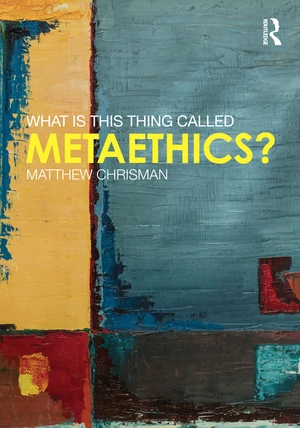Are moral standards relative to cultures? Are there any moral facts? What is goodness? If there are moral facts how do we learn about them? These are all questions in metaethics, the branch of ethics that investigates the status of morality, the nature of ethical facts, and the meaning of ethical statements. To the uninitiated it can appear abstract and far removed from its two more concrete cousins, ethical theory and applied ethics, yet it is one of the fastest-growing and most exciting areas of ethics. What is this thing called Metaethics? demystifies this important subject and is ideal for students coming to it for the first time. Beginning with a brief historical overview of metaethics and the development of a "conceptual toolkit," Matthew Chrisman introduces and assesses the following key topics: ⢠ethical reality: including questions about naturalism and non-naturalism, moral facts, and the distinction between realism and antirealism ⢠ethical language: does language represent reality? What mental states are expressed by moral statements? ⢠ethical psychology: the Humean theory of motivation and the connection between moral judgement and motivation ⢠ethical knowledge: intuitionist and coherentist moral epistemologies, and theories of objectivity and relativism in metaethics ⢠new directions in metaethics, including non-traditional theories and extensions to metaepistemology and metanormative theory. Additional features such as chapter summaries, questions of understanding, and a glossary make this an ideal introduction to metaethics.
Price history
▲11.66%
Jan 27, 2022
€50.49
▼-0.02%
Jan 26, 2022
€45.22
▼-0.84%
Jan 24, 2022
€45.23
▼-0.04%
Jan 18, 2022
€45.61
▲0.61%
Jan 17, 2022
€45.63
▲0.02%
Jan 11, 2022
€45.35
▲0.53%
Jan 10, 2022
€45.34
▲0.9%
Jan 4, 2022
€45.10
▲1.23%
Dec 28, 2021
€44.70
▼-0.13%
Dec 21, 2021
€44.16

